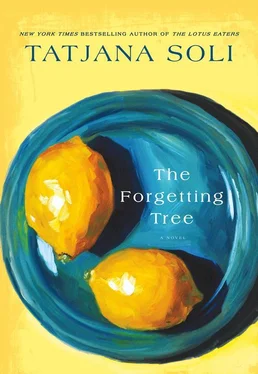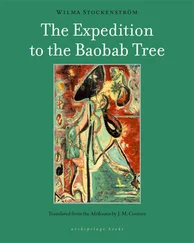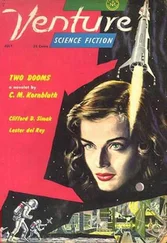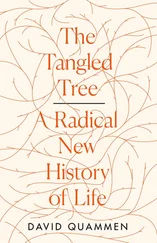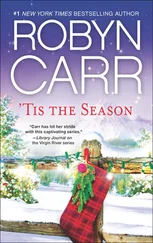* * *
That night, sitting up in bed, Claire broached the idea.
Forster jumped up as if scalded, paced the room. “The farm has never had debt.”
“I understand.” She was already weary, knowing the contours their argument would follow.
“That’s how we’ve stayed independent. My mother would die if she knew.”
Claire waited a long, pregnant moment. “We’re on the verge of bankruptcy. We need it for payroll, equipment. Fertilizers. New tree grafts. Just to stay competitive.”
“I’ll be the first generation to mortgage the place, to put it in debt.” Forster knelt in front of her. “I’m confused.”
“We have to try this.”
“If it doesn’t work?”
She ran her roughened palm down the side of his face. “No choice but sell.”
* * *
That first winter there was record rainfall, and the spring yield was double. They paid the loan down halfway. The next fall, a second crop of lemons in, Claire felt a sense of accomplishment as she and Forster watched triple the usual number of packed crates, stamped with the Baumsarg name, being loaded on trucks.
Forster just took her hand, nodded.
But the following year was dry again. Only a few inches of rainfall. Drought conditions and some of the trees dropped fruit. Red scale infestation. Claire called Mr. Relicer, and the loan amount was promptly increased. As an afterthought, she invited him to their annual Memorial Day picnic, sensing the need for his goodwill. This seesawing would continue year by year for the next decade.
* * *
Summers she worked outside from dawn till dusk under the goad of debt, but even in California winters there was work to be done, especially as they implemented rotating crop harvests so something would always be coming to market. As the years passed, she was not there to take the children to the school bus, nor was she the one waiting for them in the afternoon. She did not bake cookies for them, Hanni did that, nor was she around to supervise homework. As soon as they were old enough, their after-school chores consisted of helping work the ranch, and their first memories of their mother always involved the groves. Frequently her first interaction would be to kiss their already sleeping faces good night. Josh liked to form a cave under his bed and sleep there, so she would climb down on her hands and knees, claustrophobic with the mattress only inches from her face, to kiss him good night. Usually he was cheating, staying up late, reading a comic with a flashlight. Sometimes they read together.
“Time for bed, Josh.”
“My name is Steve Rogers.”
“Okay, bedtime, Steve.”
“I’m really Captain America,” he whispered.
“Now.”
“I have to defeat Red Skull for the safety of mankind.”
“Mankind can wait till morning.”
She missed the children but felt she could recover her time with them later when things were easier.
* * *
One Christmas Eve temperatures threatened to drop below freezing, so instead of opening presents, Forster and she took the children out with them to tend the few remaining smudge pots illegally tucked away in difficult corners of the farm, stopping to listen to the humming of the big wind machines that would protect the nascent crop, tempting the children with the idea that Santa might make his way through the rows. Instead of lumps of coal, Joshua threw oranges at his sisters and hid in the dark. When he came out, his face and arms were black from the oily soot of the smudge pots. “Captain America to the rescue.” Claire scolded and laughed. Still days after, the handkerchief he blew his nose with turned black.
* * *
During this time, the surrounding farms continued to be sold, most at sky-high profit, more and more farmers surrendering, retreating farther and farther inland in search of cheap land, but more importantly in search of the freedom of a disappearing way of life. Split-level wood-and-brick ranch houses went up, then these, in their turn, gave way to large, gleaming mini-mansions with glass walls that deflected rather than invited. Indigenous eucalyptus and California pepper trees were chopped down; Italian cypress planted. Golf courses were carved out of the landscape. Fences went up, gates with intercoms and cameras, patrolled by snarling, box-headed dogs. A seismic change had occurred by the time Hanni no longer knew the names of their closest neighbors.
Once a year, Claire oversaw the repainting of the farmhouse’s white clapboard walls, the glossy coating of the trim and window sashes, as neighboring, now dated, ranch houses were torn down to make room for the new rage of Tuscan villas. As out of place as seeing an elephant grazing in the desert. Like a herd of elephants, their sheer numbers destroyed the delicate balance around them. Like weeds overtaking a garden. At first, land parcels were divided in five-acre plots, then divided down to two, to one, cut in half, then halved again, until the land could barely contain the outer walls of these monstrosities. Home prices and land prices rising, the Baumsarg place became an eccentricity, a gentleman’s pastime, an anomaly. A fortune in dirt.
Except that they had to earn a living off it. A devil’s choice: to be wealthy but lose your place, or be poor and be rooted.
* * *
At the yearly parties put on by the family, Mr. Relicer was an obligatory if unwanted guest. He came the earliest and stayed the longest, never declining the grudged invitation. At the beginning of each month, the statement from the bank arrived, and Claire wrote out the check for interest, which was steadily taking a bigger and bigger bite of their earnings. Debt had become unavoidable, predictable as drought or pests. Claire’s mood would be dark those days of bill-paying, and she would go out alone to walk the farm. Their small valley was still not part of the great suburbanization that was consuming the rest of the area in tract housing and minimalls. They were still a throwback to the rural roots of the area, a backwater of the past. A last holdout. But for how much longer?
On those walks she often dreamed of the land’s returning to its sparsely filled former self, with adobe-bricked haciendas, or colonial Spanish stucco. Better than that, though, the landscape should be unshackled of human design entirely, remain empty, except for rows upon rows of avocado, orange, and lemon, or further back in time to grapes and black walnut, apricot and almond. But even human cultivation was not the beginning; in the beginning, the land was vacant of everything, the hills barren except for scrub and chaparral, the land unfilled, suffused only with air and sunlight, a state that some might call paradise.
* * *
With Josh now eight, Hanni realized that her role had become ornamental, that Claire had filled it and then some. Hanni decided to finally take the world tour she always dreamed of. The Saturday teas had convinced her that there was indeed a world beyond the ranch, beyond Southern California, and no matter how unlikely it was to surpass home, Hanni was determined to pass judgment before her wits left her for good.
In Thailand, bewildered and made homesick by the unfamiliar, the chance comment of a fellow traveler sent her to visit a citrus orchard.
The heat that day was overwhelming, the dead weight of humidity something Hanni was unused to, and after climbing a slight hill, she felt faint. The local farmer helped her sit down in the dirt, her back against a tree, shaded from the intense sun. He took out a small, sharp dagger and plucked off a deep green orange. He cut it in half. Hanni was surprised that inside it was ripe and juicy.
The farmer had a mild, worn face. He walked barefoot through his orchard; clearly he’d spent his whole life there. Hanni felt at home for the first time since she’d left. Through a guide, he explained that the temperature never dropped enough to make the outside peel orange, although the fruit was ripe. Hanni acknowledged California’s riches — the cool evening temperatures that produced the glorious color.
Читать дальше
